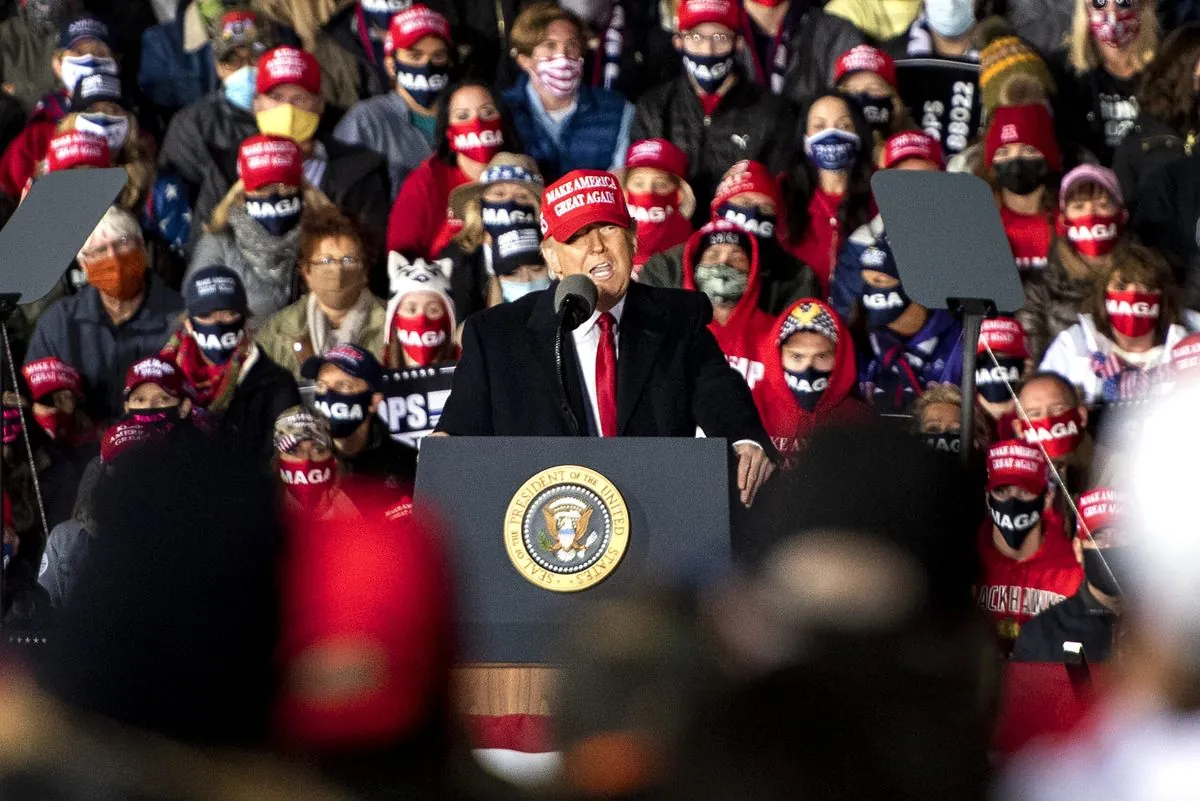In the realm of American politics, the color red has become synonymous with the Republican Party. While this association isn't directly attributable to Donald Trump, his campaign's iconic red baseball caps have undeniably strengthened this connection. However, Trump's recent rhetoric harks back to an earlier era when "red" carried a very different connotation.
For Americans of a certain generation, the color red was once inextricably linked to communism and the Soviet Union. This association dates back to the Russian Revolution of 1917 and persisted throughout the Cold War era. In fact, the Republican Party's adoption of red as its unofficial color only occurred after the fall of the Soviet Union in 1991, marking a significant shift in the color's political symbolism.
Trump's recent statements have revived Cold War-era language, particularly in his characterization of his political opponents. In a recent social media post, he referred to Vice President Kamala Harris as a "Radical Left Marxist" and "Comrade Kamala," warning that her potential presidency could turn the USA into a "Communist Country."
This isn't the first time Trump has employed such rhetoric. During the 2016 campaign, he frequently labeled Senator Bernie Sanders as a communist. In 2020, he expanded this characterization to include the broader left and then-candidate Joe Biden, using terms like socialism, Marxism, and communism interchangeably.
Interestingly, public concern about the United States becoming a communist nation doesn't align with Trump's rhetoric. A YouGov poll conducted in late 2023 found that most Americans, including a majority of Republicans, considered such a transformation unlikely in the next decade. Only about a quarter of Republicans viewed it as a realistic possibility.
Trump's use of communist accusations appears to be a strategic response to allegations of his own authoritarian tendencies. By painting his opponents as left-wing authoritarians, he attempts to deflect criticism of his own embrace of right-wing authoritarian figures and policies that some view as erosions of liberal democracy.
"THE DEMOCRATS ARE, 'A THREAT TO DEMOCRACY?'"
This rhetorical approach reflects a mindset rooted in the 1980s, when labeling someone a communist was considered one of the most severe political accusations. However, in 2024, nearly 33 years after the collapse of the Soviet Union, such rhetoric may seem outdated to many voters.
The persistence of this language in modern American politics serves as a reminder of the lasting impact of the Cold War on the nation's political discourse. From the Red Scare of the 1950s to the fall of the Berlin Wall in 1989, anti-communist sentiment has played a significant role in shaping American political rhetoric and policy.
As the 2024 election approaches, it remains to be seen whether Trump's revival of Cold War-era accusations will resonate with voters or be viewed as an anachronistic attempt to stir up fears from a bygone era.
